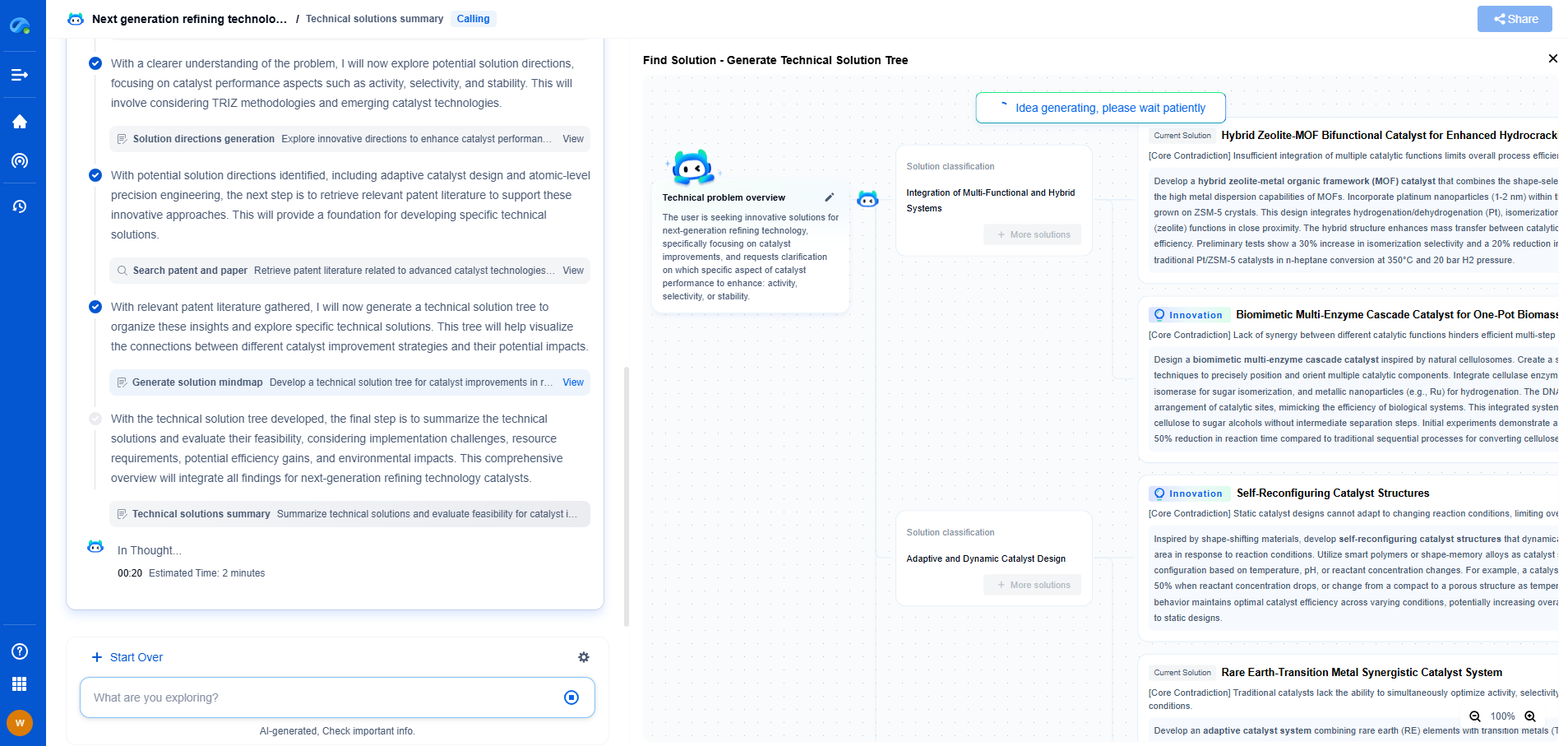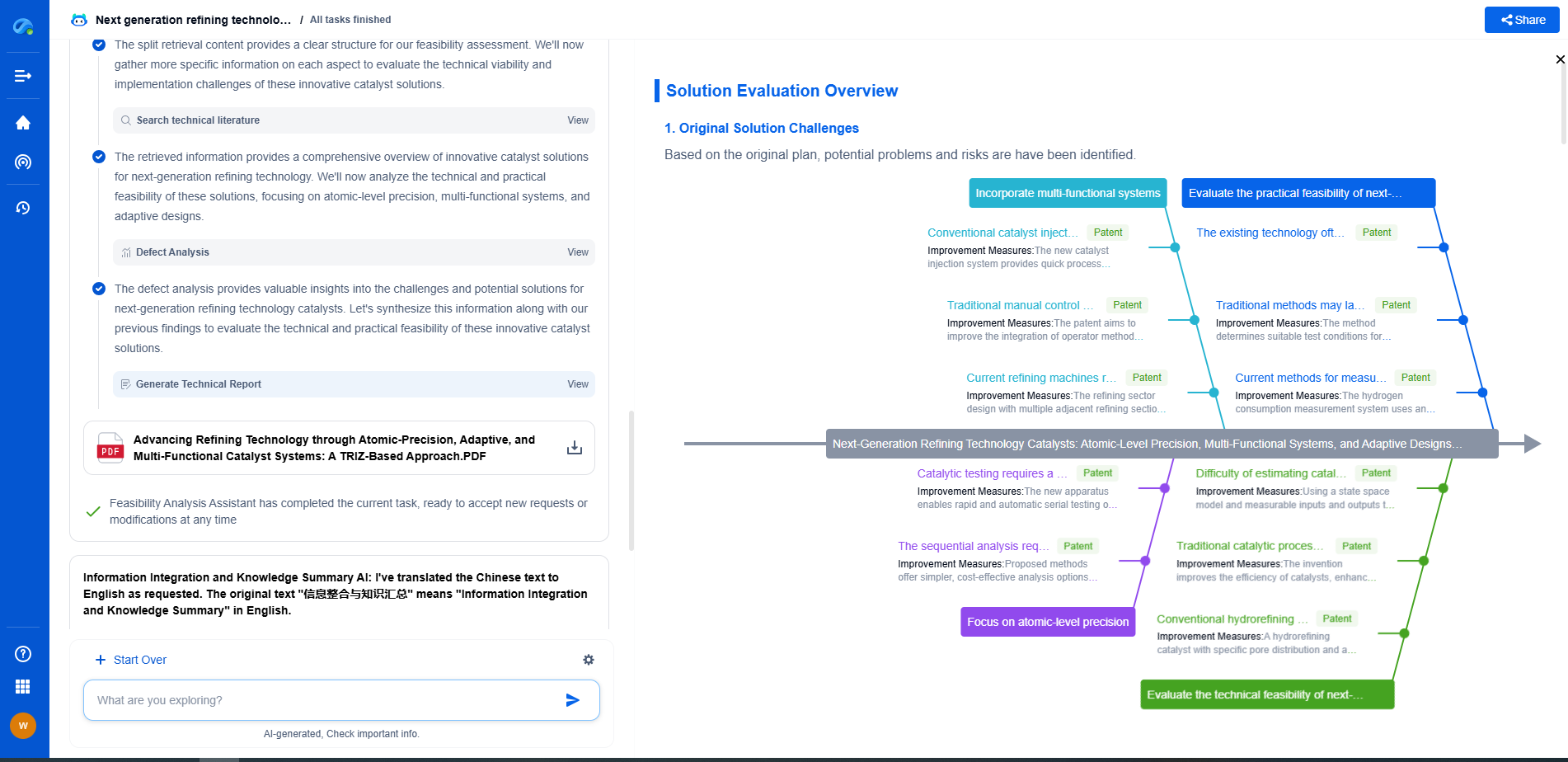What is a DC Link Capacitor? Key Roles in Power Electronics
JUN 26, 2025 |
A DC link capacitor is a crucial component in power electronics systems, often serving as an essential part of inverters, converters, and motor drives. Its primary function is to provide a stable DC voltage to the load, smoothing out voltage fluctuations and storing energy to support transient loads. Understanding the role of DC link capacitors is vital for grasping how power electronic devices maintain efficiency and reliability.
The Role of DC Link Capacitors in Power Electronics
1. Voltage Stabilization
One of the primary roles of a DC link capacitor is to stabilize the voltage within a power electronic device. As power is converted from AC to DC, fluctuations can occur due to changes in the load or input conditions. These fluctuations can lead to inefficiencies and potential damage to electronic components. A DC link capacitor absorbs these fluctuations, ensuring a smooth and steady voltage supply. This stabilization is particularly important in applications like electric vehicles and renewable energy systems where consistent power delivery is crucial.
2. Energy Storage and Supply
DC link capacitors also act as energy storage devices. During periods of low demand, they store excess energy, which can then be released during high demand or transient load conditions. This capability is critical in ensuring that the power electronic system can respond quickly to changes in load, maintaining performance and protecting sensitive components from sudden current spikes. This energy storage feature is especially beneficial in systems like motor drives, where rapid changes in load are common.
3. Reducing Ripple
Ripple voltage is an unwanted AC component superimposed on a DC signal, often caused by the rectification process. DC link capacitors significantly reduce this ripple voltage, ensuring a pure DC output. This reduction is important for minimizing electromagnetic interference (EMI) and ensuring the smooth operation of downstream components. In applications like telecommunication systems and industrial automation, where signal integrity is paramount, minimizing ripple is essential.
4. Enhancing Efficiency
By stabilizing voltage and reducing ripple, DC link capacitors enhance the overall efficiency of power electronic systems. They allow for smaller, more efficient inverters and converters, reducing energy losses and improving performance. This efficiency not only leads to cost savings but also contributes to the longevity and reliability of the electronic devices. In the context of renewable energy systems, such as solar inverters, improved efficiency can lead to better energy conversion and more sustainable energy systems.
Factors Affecting DC Link Capacitor Performance
1. Capacitance Value
The capacitance value of the DC link capacitor is a critical parameter that determines its ability to store and discharge energy. Selecting the appropriate capacitance value is essential for meeting the specific demands of the power electronic system. A capacitor with too low a capacitance may not adequately smooth voltage fluctuations, while one with too high a capacitance may add unnecessary size and cost to the system.
2. Voltage Rating
The voltage rating of the capacitor must be carefully chosen to withstand the maximum DC voltage in the system. Using a capacitor with a voltage rating too close to the system's operating voltage can lead to breakdown and failure, compromising the entire system’s reliability. Therefore, a margin above the maximum expected voltage is typically recommended.
3. Temperature and Environmental Considerations
Capacitors are sensitive to temperature variations and environmental conditions. High temperatures can lead to increased leakage currents and reduced lifespan, while extreme cold can affect performance. It is important to consider the operating environment and select capacitors that are rated for the specific conditions they will encounter. In some cases, additional cooling or protective measures may be necessary to ensure optimal performance.
Conclusion
DC link capacitors play a vital role in the efficient operation of power electronic systems by stabilizing voltage, storing energy, reducing ripple, and enhancing overall efficiency. Understanding their function and selecting the appropriate capacitor for a specific application are crucial steps in designing reliable and efficient electronic devices. As power electronics continue to evolve, the importance of DC link capacitors in enabling advanced technologies and sustainable energy solutions remains undeniable.
Stay Ahead in Power Systems Innovation
From intelligent microgrids and energy storage integration to dynamic load balancing and DC-DC converter optimization, the power supply systems domain is rapidly evolving to meet the demands of electrification, decarbonization, and energy resilience.
In such a high-stakes environment, how can your R&D and patent strategy keep up?
Patsnap Eureka, our intelligent AI assistant built for R&D professionals in high-tech sectors, empowers you with real-time expert-level analysis, technology roadmap exploration, and strategic mapping of core patents—all within a seamless, user-friendly interface.
👉 Experience how Patsnap Eureka can supercharge your workflow in power systems R&D and IP analysis. Request a live demo or start your trial today.
- R&D
- Intellectual Property
- Life Sciences
- Materials
- Tech Scout
- Unparalleled Data Quality
- Higher Quality Content
- 60% Fewer Hallucinations
Browse by: Latest US Patents, China's latest patents, Technical Efficacy Thesaurus, Application Domain, Technology Topic, Popular Technical Reports.
© 2025 PatSnap. All rights reserved.Legal|Privacy policy|Modern Slavery Act Transparency Statement|Sitemap|About US| Contact US: help@patsnap.com

